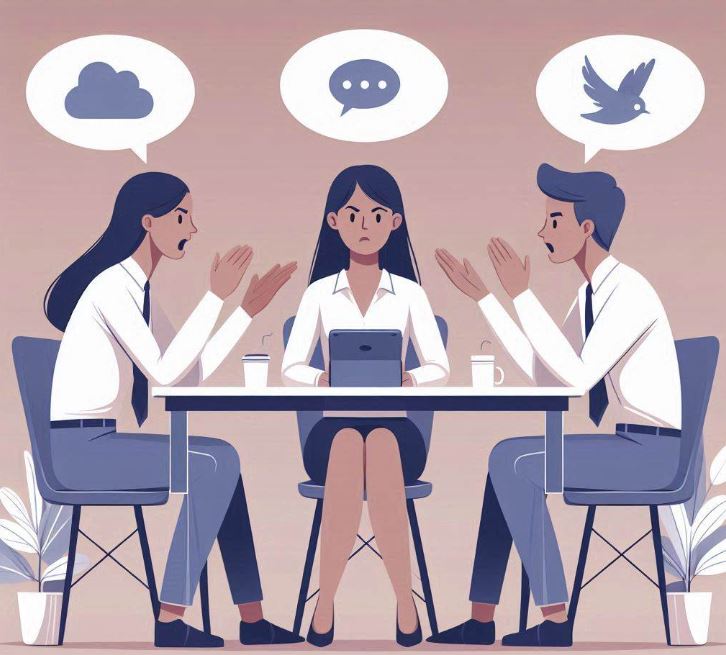Effective communication lies at the heart of building strong relationships, fostering understanding, and resolving conflicts. However, communication barriers can hinder our ability to connect with others and impede the exchange of ideas and emotions. One common barrier is the presence of defense mechanisms, which are unconscious strategies we employ to protect ourselves from emotional discomfort. In this article, we will explore various defense mechanisms and other communication barriers that can hinder effective communication. We will also discuss strategies to break through these barriers and promote open and meaningful communication.
Understanding Defense Mechanisms
Defense mechanisms are psychological strategies we use to cope with perceived threats or emotional distress. Although they serve a protective purpose, they can hinder effective communication by distorting or blocking the expression of thoughts, emotions, and needs. Here are some common defense mechanisms and their impact on communication:
- Denial: This defense mechanism involves refusing to acknowledge or accept uncomfortable truths or realities. When individuals deny their emotions or the impact of their actions, it becomes challenging to engage in honest and open communication.
- Projection: Projection occurs when individuals attribute their own unwanted thoughts, feelings, or characteristics to others. By projecting their own emotions onto someone else, individuals avoid taking responsibility for their own contributions to a situation, hindering authentic communication.
- Rationalization: Rationalization involves creating justifications or excuses to avoid facing the true reasons behind our actions or decisions. When individuals engage in excessive rationalization, it becomes difficult to have meaningful conversations that address the underlying issues.
- Deflection: Deflection is the act of redirecting the focus of a conversation away from oneself. By shifting the attention onto others or unrelated topics, individuals avoid addressing their own thoughts or feelings, preventing effective communication.
- Withdrawal: This defense mechanism involves retreating or withdrawing from a situation or conversation to avoid emotional discomfort or conflict. While temporary withdrawal may be necessary for self-care, prolonged avoidance can hinder meaningful dialogue and understanding.
Breaking Through Defense Mechanisms
To promote effective communication, it is crucial to recognize and break through defense mechanisms. Here are some strategies to help navigate and overcome these barriers:
- Foster Trust and Safety: Create an environment of trust and safety that encourages open and honest communication. Assure others that their feelings and perspectives will be respected and valued, allowing them to feel comfortable enough to let their guard down.
- Active Listening: Practice active listening by fully engaging with the speaker, paying attention to their words, tone, and body language. Demonstrate empathy and seek to understand their underlying emotions and needs.
- Reflect and Validate: Reflect back what you hear to ensure understanding and validate the speaker’s feelings. Let them know that their emotions are acknowledged and that their experiences are valid.
- Avoid Judgment: Refrain from passing judgment or criticizing the speaker’s thoughts or emotions. Create a judgment-free space where individuals feel safe expressing themselves without fear of being judged.
- Encourage Self-Reflection: Gently encourage individuals to explore their own defense mechanisms and underlying emotions. Help them recognize patterns of behavior and how these defenses may be impacting their communication.
Other Communication Barriers
In addition to defense mechanisms, several other barriers can impede effective communication. Let’s explore a few common ones:
- Misunderstandings and Assumptions: Communication breakdowns often occur due to misunderstandings or making assumptions about the other person’s intentions or meaning. Clarify and seek clarification to ensure that messages are interpreted correctly.
- Language and Cultural Differences: Communication can be hindered by language barriers or differences in cultural norms and expectations. Be mindful of these differences and strive for cultural sensitivity and inclusivity.
- Emotional Triggers: Past traumas or unresolved emotional issues can serve as triggers that hinder effective communication. Recognize these triggers and work towards addressing and healing them to create a safe space for open dialogue.
- Power Imbalances: Power imbalances in relationships, whether due to hierarchy or other factors, can create barriers to communication. Strive to create an egalitarian environment where all voices are heard and valued.
Strategies for Overcoming Communication Barriers
To break through these communication barriers, consider implementing the following strategies:
- Develop Self-Awareness: Understand your own communication style, triggers, and biases. Cultivate self-awareness to recognize when communication barriers arise and how they may be affecting your interactions with others.
- Cultivate Empathy: Put yourself in the other person’s shoes and try to understand their perspective and emotions. Empathy allows for a deeper connection and a more compassionate approach to communication.
- Improve Emotional Intelligence: Enhance your emotional intelligence by developing a greater awareness of your own emotions and the ability to recognize and respond to the emotions of others. Emotional intelligence enables effective communication and fosters stronger relationships.
- Practice Effective Feedback: Learn to deliver feedback in a constructive and non-threatening manner. Use “I” statements to express your thoughts and emotions, and encourage a dialogue that allows for the exchange of feedback between both parties.
- Seek Mediation: In situations where communication barriers persist or become unmanageable, consider seeking the assistance of a neutral third party, such as a mediator or therapist, who can facilitate healthy and productive conversations.
Conclusion
Effective communication is essential for building meaningful relationships and resolving conflicts. By understanding and breaking through defense mechanisms and other communication barriers, we can foster open and authentic dialogue. By practicing active listening, empathy, and self-reflection, we can create an environment where individuals feel safe to express their thoughts and emotions. Remember, effective communication is a skill that can be honed over time, leading to stronger connections and more fulfilling interactions.
If you like what you have read, check out other articles on the website ThinkingDeeplySelf-Critically.com The site is designed to give us tools and techniques to help us become the best version of ourselves. There are four main categories on the site. The Foundation, Our Responsibility to Us, Our Responsibility to Others and Facilitating Crisis. We can also be found on Pinterest.


